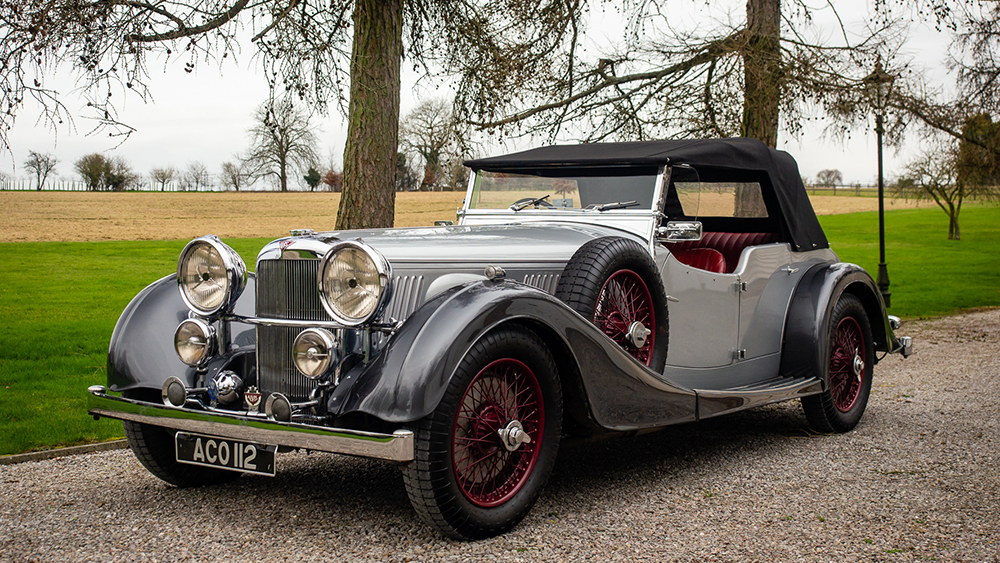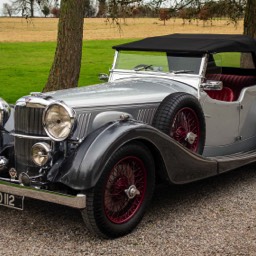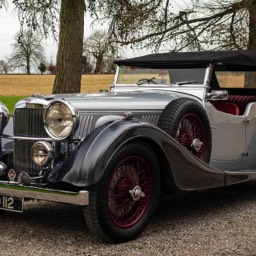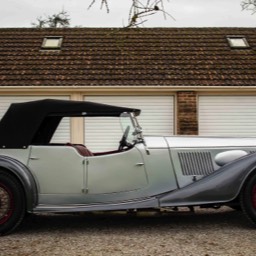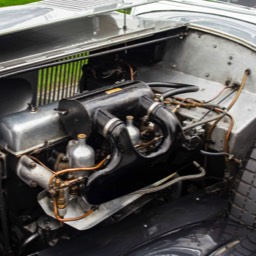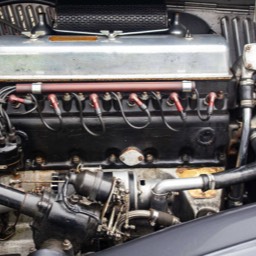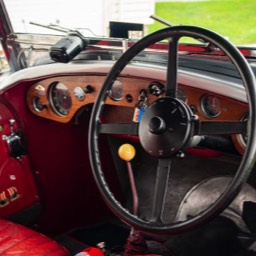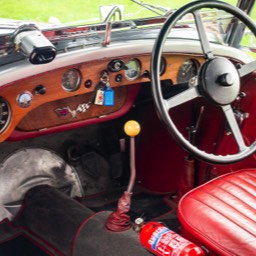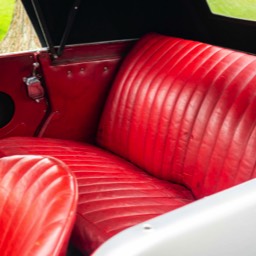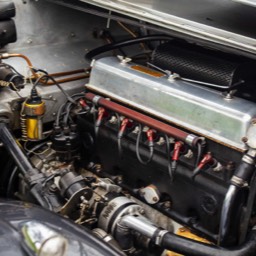WORLDWIDE COLLECTOR CAR SALES
Purchase Sales Consignment & Valuation
Int T: +44 (0) 79 85 98 80 70
WORLDWIDE COLLECTOR CAR SALES
Purchase Sales Consignment Valuation
Int T: +44 (0) 79 85 98 80 70
1937 Alvis 4.3 Litre Open Tourer
Year: 1937
Chassis No: 13644
Engine No: 14224
Car No: 18689
U.K. Registration No: ACO 112
Coachwork: Open Tourer by Cross and Ellis
Last ownership for 44 years
Alvis was founded in 1919 as T.G. John & Co. Ltd., to make stationary engines and motor scooters. It grew to become one of the most well respected engineering companies in the world. In 1921 the company became the Alvis Car and Engineering Company Ltd., adopted the famous red triangle logo, and started to produce motorcars. A reputation for manufacturing high quality machines with excellent performance was quickly achieved. Based in Coventry Alvis was at the centre of British engineering achievements for decades and achieved many “firsts”, such as (in 1928) the first front wheel drive production car, and later the world’s first all-synchromesh gearbox, and the first independent front suspension design. Together with notable success racing at Le Mans and the TT in the 1920's the company had huge sales success with their 4 cylinder 12/50 design. Later in the decade they produced their first 6 cylinder cars. Throughout the 1930’s, starting with the Speed 20, Alvis continued to develop their model range continuing with the Speed 25 the 3.5 Litre and finally the outstanding 4.3 Litre. It was the fastest non-supercharged car of its day and more advanced in design than either its main competitors, the 4.25 Litre Derby Bentley and the Lagonda LG 45. During WW11 Alvis concentrated on aero engines and armoured vehicles for the war effort. The 1950’s and 60’s saw Alvis return to motorcar manufacture making some notable models (TA,TD,TE and TF21). Late in the 1960’s the company became part of Rover. The military devision continued until 2004 when the company (now simply Alvis Ltd.) was absorbed into BAE Systems.
The 4.3 Litre Alvis is a remarkable car. In the 1930’s, as already mentioned, Alvis continued to develop their 6 cylinder design, and the 4.3 Litre represents the culmination of the experience and development over several years. The main competition at the time was Bentley and Lagonda. Both produced wonderful machines but there are some notable features that only the Alvis had. Essentially the Derby was a late 1920’s Rolls Royce chassis that had been updated, and the Lagonda utilised the reliable but unsophisticated Meadows engine, also used in boats, tractors, and commercial vehicles. The Alvis boasted independent front suspension, an all synchromesh gearbox their own very advanced engine and many more modern features. One of the more subtle differences is the height of the radiator. The independent front suspension enabled the engine to be fitted lower in the chassis, both lowering the center of gravity and the radiator height enabling the coachbuilder to produce a sleeker more modern design. The Alvis 4.3 Litre is without doubt the most sophisticated British sports car produced in the 1930’s.
This car was delivered with saloon coachwork in 1937.
The coachwork now fitted is an original Cross and Ellis tourer body and has been restored to the very highest standards. During the last (near 45) year ownership not only has the car been expertly maintained but it has been updated and developed utilising some of the refinements introduced by Alvis in the very last cars of the production run. The front cross member, for example, is the later stiffer design with the front end of the chassis a fully welded closed box section, as per the very last 4.3 Litres. The brakes utilise the lighter Alfin brake drums to reduce unsprung weight.
The engine has been totally rebuilt utilising a counterbalanced crank, new block (VSCC approved), lightweight pistons, a new head, revised valves, new oil pump, and bearings etc. The steering, gearbox and drive shafts have all been overhauled or replaced. The cooling system has been upgraded, and a recirculating fuel system has been installed to eliminate fuel vaporisation. A high torque starter has been fitted. With the addition of the overdrive unit the car will happily cruise at 70 MPH at 2500RPM! It is capable of achieving over 100 MPH!
This is a remarkable car on the road that easily keeps pace with modern traffic and stops and steers almost like a modern car. It is eminently suitable for the most demanding international rallies and tours.
Prince Vintage Ltd t/a Charles Prince Classic Cars
Registered in England and Wales
Registration No: 9361224.
Prince Vintage Ltd t/a Charles Prince Classic Cars
Registered in England and Wales
Registration No: 9361224.
